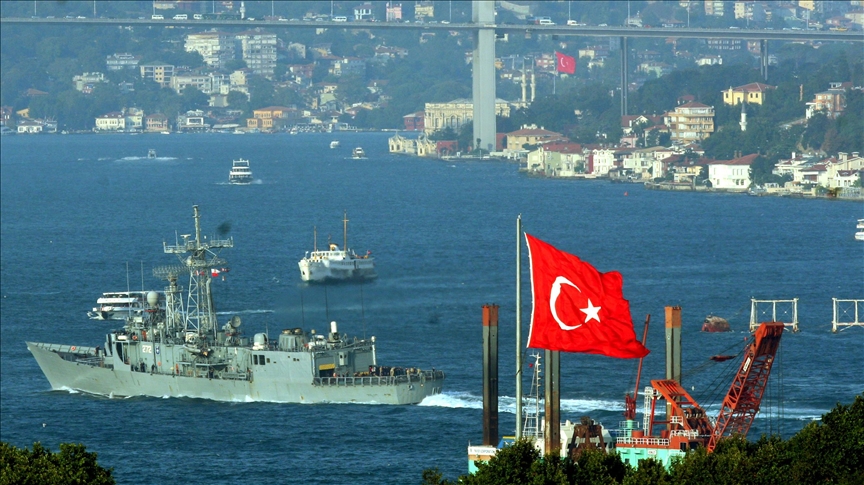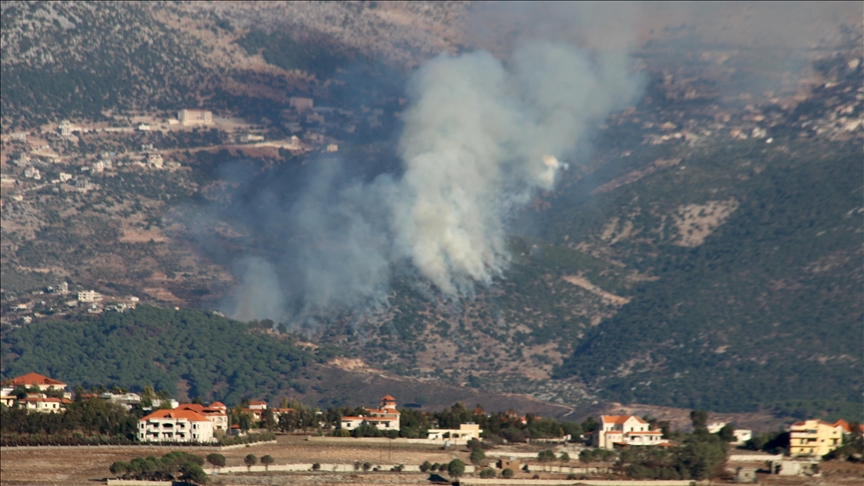Why Russia and Ukraine view Türkiye as a reliable mediator
- Russia and Ukraine chose Türkiye because both have good working relations with Ankara and respect its neutral position, according to analysts
- Factors that make Türkiye right for both sides include its experience with past Russia-Ukraine talks, geopolitical proximity, Ankara’s policy of neutrality, and President Erdogan’s diplomatic clout, say experts
MOSCOW/ISTANBUL
This Thursday could mark a pivotal moment in global efforts to halt the Russia-Ukraine war as their leaders are expected to hold direct talks in the Turkish city of Istanbul.
The potentially historic meeting represents the most advanced stage of negotiations since the two sides were brought together in March 2022 by the same mediator, Türkiye, a reflection of the level of trust Ankara enjoys with both Russia and Ukraine.
This time, it was Russian President Vladimir Putin who proposed a meeting in Türkiye, making the announcement in a Sunday press conference as he countered Ukraine and European nations’ demand for an unconditional 30-day ceasefire.
Turkish President Recep Tayyip Erdogan confirmed Ankara’s readiness to host the discussions in a phone call with Putin the same day, followed by US President Donald Trump urging Ukrainian leader Volodymyr Zelenskyy to “immediately” take up the Russian proposal for direct talks.
Zelenskyy responded by saying he would be in Türkiye on Thursday and expects Putin to also be there “personally.”
While Russia has yet to confirm Putin’s plans, Trump – who is on a tour of Saudi Arabia, Qatar and UAE – said he would even consider traveling to Istanbul if the direct talks do go ahead.
In all of this, Türkiye is once again at the center of what could become a defining moment in international politics – a coveted position that analysts say reflects both Ankara’s diplomatic clout and a success of its foreign policy strategies.
For Russia and Ukraine, analysts say, choosing Türkiye as the venue makes complete sense as it has already proven to be a reliable mediator with past negotiations in March 2022 and the Black Sea Grain Initiative later that July, which helped ease the war’s impact on global food security.
“Türkiye has a great deal of experience in mediation, particularly between Russia and Ukraine,” said Amur Gadzhiev, director of the Moscow-based Center for Modern Türkiye Studies.
Ankara’s extensive diplomatic experience was also cited by Turan Gafarli, a non-resident fellow at the Baku-based Topchubashov Center, who said Türkiye’s mediation efforts in conflicts around the world make it an attractive venue for such high-stakes diplomacy.
Türkiye’s experience makes it “stand out” among potential hosts for these talks, Gafarli told Anadolu.
“Türkiye’s geopolitical proximity to the ongoing conflict also bolsters the country’s appeal for Moscow and Kyiv as a neutral platform for direct talks,” he added.
Türkiye’s unique position as a ‘natural mediator’
Another factor making Türkiye an ideal venue is its strategic location and balanced relations with both parties, with Ankara maintaining open communication channels with both Moscow and Kyiv throughout the war.
Russia and Ukraine chose Türkiye because both have good working relations with Ankara, said Gadzhiev, emphasizing Ankara’s neutrality over the past three years.
Türkiye’s standing as a NATO member and EU candidate further reinforces its credibility on the international stage, he continued, as the country maintains friendly relations with both Russia and the West.
“As a Black Sea state itself, Türkiye understands the situation better than any other country that could serve as a mediator,” he said.
“It understands the gravity of the issue and is interested in its resolution, which cannot be expected from states located far from the region.”
This view is echoed by Mark Kimmitt, a retired US general, who described Türkiye as a “natural mediator” for the talks.
“I believe both sides feel that Türkiye is neutral enough to play a mediator role,” he told Anadolu.
Gafarli agreed, emphasizing that Türkiye’s support for Ukraine’s territorial integrity and its decision not to join Western sanctions on Russia reflect a pragmatic, non-aligned approach.
Erdogan’s personal diplomacy
A key ingredient behind Türkiye’s mediation success lies in the personal relationships President Erdogan has cultivated with both Putin and Zelenskyy.
Analysts say this trust and mutual respect have played an important role in reviving negotiations.
“Erdogan’s relations with Putin are quite good and constructive. Trump also recently spoke positively about Erdogan,” Gadzhiev said.
Moscow and Ankara also have significant experience in addressing other regional issues together, such as Syria, Libya, and Karabakh, he added.
Gafarli built on this by pointing out that both Putin and Zelenskyy have good ties with Erdogan, which puts Ankara “a step forward” in mediation efforts.
He highlighted a telling moment from February 2025, when Erdogan held an umbrella over Zelenskyy during a visit to Ankara – a symbolic gesture after the Ukrainian leader’s infamous spat with Trump at the Oval Office.
The image, he said, encapsulated the level of trust Kyiv places in Erdogan.
“The picture … shows Ukraine’s trust in Türkiye as a trustworthy partner, as well as its gratitude for Ankara’s strong support for Kyiv’s territorial integrity,” he added.
For now, while hopes are high for a successful meeting in Istanbul that could bring about an immediate result or serve as a springboard for further negotiations, experts caution that the road ahead remains uncertain.
Still, Türkiye’s ability to bring the two sides together at the same table is a diplomatic feat in itself – one that may create space for a peaceful solution, however incremental.
Anadolu Agency website contains only a portion of the news stories offered to subscribers in the AA News Broadcasting System (HAS), and in summarized form. Please contact us for subscription options.


